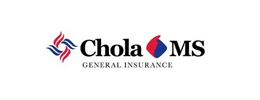Last updated on: September 19, 2025
The Care Heart Plan and Care Senior Health Advantage Plan are both health insurance products by Care Health Insurance, but cater to different needs. The Care Heart Plan is specifically designed for individuals diagnosed with heart ailments, offering coverage for cardiac treatments, surgery, and related conditions. It typically includes features like coverage for pre-existing heart diseases, annual health checkups, and discounts for healthy lifestyles. On the other hand, the Care Senior Health Advantage Plan is tailored for senior citizens (usually aged 60 and above), providing broader coverage for age-related medical expenses, pre-existing diseases after a short waiting period, domiciliary hospitalization, and a range of benefits suited for elderly healthcare needs. In summary, choose the Care Heart Plan if you specifically need cardiac coverage, and opt for the Care Senior Health Advantage Plan for comprehensive senior medical coverage.
The issue of choosing the appropriate health insurance is of paramount importance, particularly when you grow old or your loved ones. Through the escalating cost of medicines in India, it has become even necessary to plan up comprehensive health insurance in India by 2025. Among the two plans that are frequently found at the top of the lists of comparison are the Care Heart Plan and Care Senior Health Advantage Plan. It is significant to learn about their structure, appropriateness, and advantages to make informed decisions that can address the needs of the particular healthcare.
This guide provides the detailed side by side analysis of these two policies. It examines their features, eligibility requirements, what each plan covers, their special benefits, the possible shortcomings and professional opinion on the choice of plan between them. At the end, you will be able to gain a clear understanding what plan would be best supporting your needs in 2025.
The Care Heart Plan mostly covers individuals who already have a heart condition or are at increased risk of having a heart condition. Conversely, the Care Senior Health Advantage plan is specially designed to cater to the senior citizens, who are aged 60 years and over. It considers the changing medical requirements during the aging process not only heart related conditions.
The two schemes are different in coverage specifications, premium rates, waiting time, and coverage of treatment covered. Although both strive to lower your out-of-pocket health bill in the event of key health accidents, their areas of interest and their areas of protection respond to the coverage.
Did You Know?
As of 2025, over 60 percent of the cost of heart treatments are out of pocket, except when they are under special health plans.
Key Benefits:
Key Benefits:
Expert Insight
The cost of health insurance among elderly and heart disease patients has risen by 12 percent a year after 2023 and early enrolment is economical.
Care Heart Plan:
Waiting period on the heart conditions one already has is normally 24 months and it has lower waiting at higher premium. Waiting period under general disease range between 30 days and up to 4 years depending on type of illness.
Care Senior Health Advantage Plan:
Waiting period of pre existing diseases ranges between 24 to 48 months depending on the severity of the diseases. Long waiting time in the event of complex illness may be applicable since senior customers are more likely to have comorbid conditions.
People also ask:
Q: Does both plans cover all the pre existing diseases on the first day?
A: No, cardiac condition waiting is shorter most likely in the Heart Plan than both plans since they both have a mandatory waiting period before pre existing disease claims are made.
Included:
Not Covered:
Included:
Not Covered:
Did You Know?
The cardiac health insurance frequently does not provide any congenital heart conditions whereas the health insurance in the seniors is expansive in the range of illnesses such as cancer and stroke.
Both plans come up with additional premium covers. Common options include:
These riders fill certain coverage gaps especially in the high risk individuals or in those with unstable health.
People also ask:
Q: Could these riders be introduced throughout the policy year?
A: The majority of the insurers permit riders only under renewal but not on mid term basis and according to the rules of underwriting.
Comparison of annual premium costs of a sum insured of Rs 5 lakh in sample:
| Age Group | Care Heart Plan | Senior Health Advantage |
|---|---|---|
| 40 years | Rs 13,000 | Not available |
| 55 years | Rs 23,500 | Not available |
| 65 years | Rs 37,000 | Rs 39,000 |
| 75 years | Rs 46,500 | Rs 52,000 |
Both plans have premiums that are GST-payable and which may increase with age or previous illnesses. The Heart Plan normally does not cover an individual over the age of 65, whereas Senior Health Advantage can be enrolled at any senior age.
Expert Insight
Seniors can afford premiums because they can choose simple coverage that lacks any unwanted frivolities, and by purchasing them when they are still young, they are not faced by age-related illnesses.
Pros:
Cons:
Pros:
Cons:
People also ask:
Q: What is more suitable to heart patients in the age group above 65?
A: Senior Health Advantage will probably be the sole acceptable choice provided it is over 65. Heart Plan will be able to provide better targeted coverage to those under 65 years old and with a stable heart condition.
Select Care Heart Plan when: You are under 65 years old, you have already been diagnosed with a heart condition, or you just want a plan that is specifically oriented on future heart conditions.
Select Care Senior Health Advantage when: You are (or your parents are) aged 61 years and above and desire all round health cover that includes (but not limited to) heart, diabetes, cancer, infections and other geriatric issues.
Did You Know?
Insurance should be reviewed by the advisors after every three years starting after the age of 55 to long with the medical needs of the individual and new products.
The two plans are cashless at the network hospitals in India. As of 2025, Care Health insurance has over 20,000 hospitals that are empanelled by it.
The time of processing and claim ratios are mostly the same in both plans as they are operated by the same insurance company, but in complex cases of the heart operations more detailed documentation might be necessary.
People also ask:
Q: Does it mean that both plans allow making cashless claims on all listed illnesses?
A: Yes, when the illness falls under the policy wording, and is treated at a network hospital.
Limitations of Heart Plan: In most variants it does not cover non cardiac hospital related costs that are not related to the heart. Stop-loss limit can take place following huge cardiac claims.
Limitations of Senior Health Advantage: There are high waiting periods on some of the high risk or chronic conditions. Out of pocket costs can be raised due to sub limits on room rents on long stays.
Most commonly excluded in either plan are mental illness, maternity, birth control and cosmetic procedures.
Expert Insight
The majority of high value claims in the senior citizen segment are associated with lifestyle diseases other than the heart complications alone hence the necessity of the broad based cover.
Care Heart Plan as well as Care Senior Health Advantage Plan is upgradeable upon renewal at the discretion of the insurer. This involves taking more sum insured or taking new riders after health status is re-examined. Fresh medical tests are not required when it comes to each upgrade of the same particularly when there will be no gap in the current cover.
People also ask:
Q: Does the two plans guarantee lifelong renewal?
A: Yes, these two plans do offer lifelong renewal provided you take the premium in the policy without any lapse.
Q: Which scheme has a more minimal waiting time on heart diseases?
A: The Care Heart Plan tends to have less 24 month waiting than cardiac claims.
Q: Is it possible to buy health insurance to seniors older than 70 years old?
A: Yes, the Care Senior Health Advantage Plan permits joining in any senior age even after the age of 70 years.
Q: Does either of the plans cover home nursing?
A: Senior Health Advantage covers domiciliary hospitalisation and homecare, which is not the case in most versions of Heart Plan.
Q: Are both plans compelled to have pre policy checkup?
A: Senior Health plans tend to be more lenient, usually, with seniors with known medical history.
Q: Are these plans cashless pan India hospitalisation?
A: Yes, they both have cashless claims with their extensive hospital system nationwide.
Q: Do we cover alternative and AYUSH treatment?
A: They are not included in either except with add-ons chosen.












How could we improve this article?
Written by Prem Anand, a content writer with over 10+ years of experience in the Banking, Financial Services, and Insurance sectors.
Prem Anand is a seasoned content writer with over 10+ years of experience in the Banking, Financial Services, and Insurance sectors. He has a strong command of industry-specific language and compliance regulations. He specializes in writing insightful blog posts, detailed articles, and content that educates and engages the Indian audience.
The content is prepared by thoroughly researching multiple trustworthy sources such as official websites, financial portals, customer reviews, policy documents and IRDAI guidelines. The goal is to bring accurate and reader-friendly insights.
This content is created to help readers make informed decisions. It aims to simplify complex insurance and finance topics so that you can understand your options clearly and take the right steps with confidence. Every article is written keeping transparency, clarity, and trust in mind.
Based on Google's Helpful Content System, this article emphasizes user value, transparency, and accuracy. It incorporates principles of E-E-A-T (Experience, Expertise, Authoritativeness, Trustworthiness).